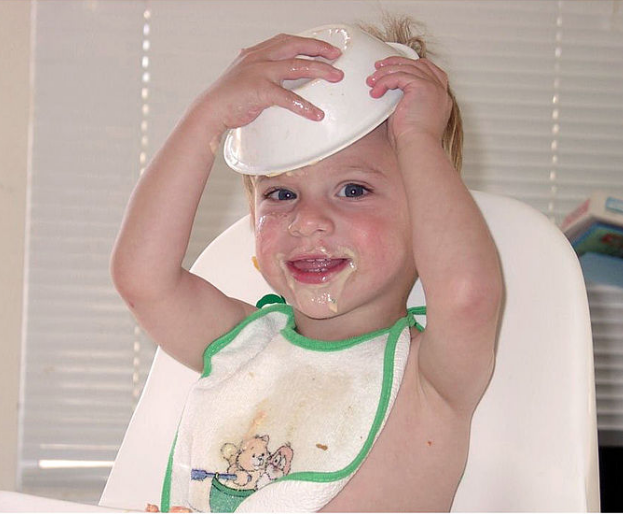Give children the benefit of boredom and find more time for yourself.
Yesterday, I took a shower in the middle of the day while my two sons bickered in the background. It was great! Why? Because until now I’ve saved my personal tasks for when the children are in bed.
Recently, I started writing early in the morning. Now, when I finally get both kids to bed, the last thing I want to do is tackle my neverending list of jobs. I’m exhausted.
Last week I had an epiphany. I should take care of myself and my needs during the day. I don’t have to keep my sons engaged and active every waking hour. In fact, it’s better for them to have some unsupervised, free time.
In our modern world full of productivity hacks and tools for time management maximisation, we’re working harder than ever. Yet, taking time to rest and recharge is essential for our mental health. It’s also critical for our children’s well-being.
“Over-scheduling can create increased stress and anxiety for both parents and children. Over the last several years there has been an increase in anxietyrelated disorders due to the stressors involved with over-scheduling.”
Rebecca Kieffer
As a former elementary school teacher of low-income, English language learners I was encouraged to make every second of my teaching day count. After all, I had to make up for huge gaps in knowledge and prepare my students for the high stakes standardized tests looming at the end of each year. As a bonus, my busy classroom routine cut down on behavioral issues. When my students were actively engaged, they had less time to goof off.
When I became a parent, I transferred this approach to my parenting. And it worked. I kept my sons so busy and active they didn’t have time to get into too much trouble. Even though I kept trouble to a minimum, I wasn’t allowing my sons to develop the interpersonal skills they’d need in the future. Children must learn how to resolve conflicts without adult intervention. It’s no good preventing disagreements at home because they will arise in the real world and children need practice resolving them.
The Benefits of Boredom

“Boredom gives children an inner quiet that helps with imagination and self-awareness.”
https://www.melbournechildpsychology.com.au/blog/the-benefits-of-boredom/
Boredom is beneficial for our children, but it’s hard for parents to let go and simply allow children to be bored. When I leave my children to their own devices for too long I soon hear raised voices followed by the inevitable, “I’m telling!”
Either that or the rough play escalates until someone gets hurt. Even now, as I write, I’m resisting the urge to intervene in the disagreement I hear next door.
My goal this summer is to allow my children to be bored often.
Because I know this will be challenging for all of us, I’m preparing my children for their newfound freedom. To do this I plan to build disconnected time into each day, give my children techniques for resolving conflicts on their own, and encourage solitary play time.
How To Prepare For A Summer of Freedom
Build Disconnected Time Into Each Day
During disconnected time no screens or digital devices are allowed. This rule applies to the adults, too. To prepare for disconnected time, my sons and I brainstormed a list of fun, screen-free activities. We wrote them down on a poster and I hung it up on the refrigerator. Now, when my sons come to me and complain of boredom, I refer them to the list.
Model Conflict Resolution
It’s important to show children how to resolve conflicts peacefully when no adults are present. Without the right foundation, they won’t be able to do this.
I wait for my children to be calm and happy before I model conflict resolution.
First, I act out a scenario. I pretend I’m my youngest son, and I ask my eldest if I can play with the Lego set he’s using. He looks at me and says, “No, I’m using it.”
I then grab the Legos and whine, “But I want to use them! It’s not fair!”
My children look at me like I’m crazy. Then, we discuss how I could’ve handled the situation differently.
They usually tell me I should have said ‘please’ and asked in a nice voice.
I then suggest the following compromise. My youngest should ask to have a turn once the eldest finishes playing with the Legos. Since my children are calm and happy, they agree with this idea.
We discuss the old adage, You can catch more flies with honey than vinegar. Then we practice using ‘honey’ in different scenarios. We each take a turn acting out a scene with vinegar, too. My sons love doing this. In our calm, happy state, they see how obnoxious this behavior is.
Of course, when my sons are in the heat of an argument they forget our conflict resolution session. But, because we’ve practiced, I can remind them of the techniques we discussed and they can change tactics to get what they want.
The second technique I use when my children are tattling on each other is to ask if they would prefer to resolve the conflict together on the peaceful step or go to their rooms for a 5 minute timeout and cooling off period.
Usually they opt to go to the peaceful step and resolve the conflict on their own (without me). Sometimes, my youngest is so upset he needs the cooling off period and my intervention. I offer to help, but only after he completes the cooling off period. By offering him this option before I intervene, he’s more motivated to work things out with his brother by himself. Eventually, he stops running to me at the first sign of a problem because he knows what my response will be.
Encourage Solitary Play
‘Children need time to themselves — to switch off from the bombardment of the outside world, to daydream, pursue their own thoughts and occupations, and discover personal interests and gifts.’
https://www.melbournechildpsychology.com.au/blog/the-benefits-of-boredom/
The first step for encouraging solitary play is to show your child how fun it can be. To do this, designate an area for ‘special play’ or put out a selection of toys and craft materials that only come out during solitary play time. Things like Legos, blocks, crayons, costumes, boxes, paper plates and tissue paper are fun materials that will encourage creative play. You can also put out a box of special books that only come out during solitary play time. To mix it up a little, send your children into the garden with a shovel and encourage them to dig holes, make mud pies, or catch insects to study.
By making solitary play a routine part of the day, you’ll give your children permission to daydream and discover personal interests. If you keep them busy, you don’t give them the freedom to pursue their own ideas or think creatively about play.
By allowing your children enough free time to be bored, you’ll give them a chance to tap into their creativity. Free play will also provide opportunities to develop the interpersonal skills our children will need in the future.
If you need more encouragement to leave your children alone or give them more independence, you may want to read the following articles:





